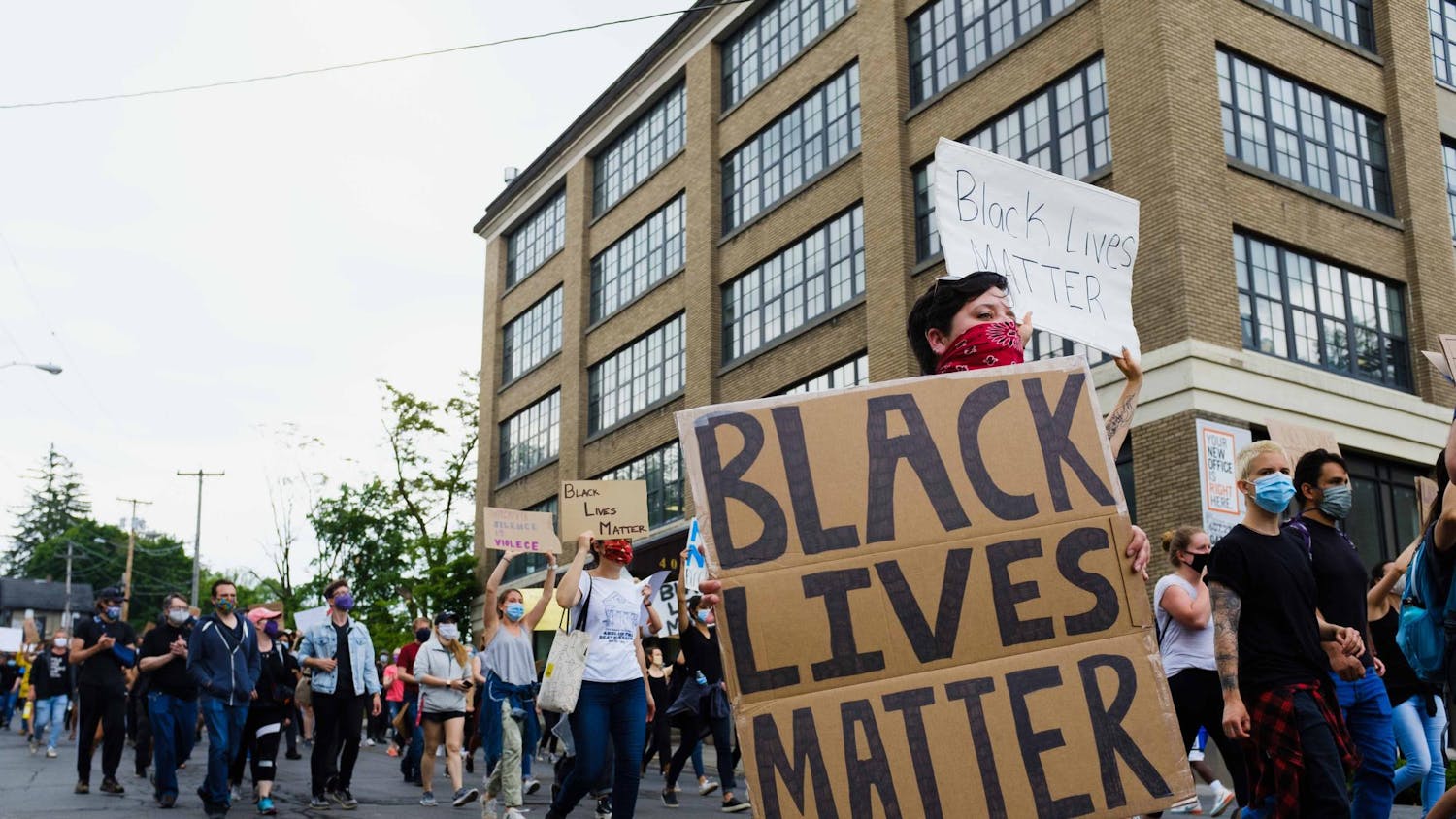During the summer, amid ongoing Black Lives Matter protests, students took to social media to share their experiences of racism at Cornell, calling for the University to enact substantial reforms. In response to the growing activism, President Martha E. Pollack unveiled a slew of anti-racist intiatives the University would implement during this academic year.
During an Oct. 14 panel, called “Anti-Racism, Activism and Institutional Change,” students scrutinized the meaning of these initiatives at Cornell and discussed their own activism. Prof. Shelley Wong, English, and Prof. Derek Chang, history, moderated the panel that consisted of student advocates and faculty.
“We’re in a moment of tremendous upheaval and turmoil but also possibilities for renewal,” said Prof. Russell Rickford, history, who was one of the panelists. “As part of that renewal, we’ve seen in recent months and years a reinvigoration and a radicalization of the struggle for Black liberation.”
Calls to abolish and defund the police have become more popular, and strong support for the Black Lives Matter movement has not wavered.
On campus, student activists have worked to expose what they see as systemic issues of racism within the University and Ithaca. This Sunday will mark the 20th week of protests against police brutality in Ithaca. The Native American and Indigenous Students at Cornell have recently released a petition with a list of demands for Cornell to rectify past crimes of “colonial violence and Indigenous erasure.”
Students and activists continue to speak out about inequality in University spaces, including in business and finance organizations. And catalysts like #DoBetterCornell have continued to push the administration toward concrete action in creating a series of anti-racist initiatives to foster a more inclusive environment.
It is in this climate that the students and faculty tackled the discussion on anti-racism, activism and institutional change. They explained their work in tackling inequality, then examined the actions of the institution. The diverse backgrounds of the panelists allowed for a shift to the broader focus on global racial issues and solutions.
The term “anti-racist,” formerly regarded as radical, is now more common. However, panelists Bwesigye Bwa Mwesigire grad and Jessica Diaz Rodriguez grad said they do not necessarily view the acceptance of this term as a positive shift.
“You’ve found the right word, but are you doing the right work?” said Rodriguez, an English Ph.D. candidate.
Rodriguez said institutions, including Cornell, can use the phrase “anti-racist” to hide non-action, to satisfy the general public’s expectations, only to fail at taking concrete action. She acknowledged that the term can be useful in providing a common language, but it may not necessarily compensate for what it can conceal.
Mwesigire was uncomfortable with the widespread focus on “anti-racism.” Through this term, institutions have too often centered their discussions on whiteness, he said. He argued that instead, people should focus on the existing root of racial inequality, which he said was capitalism. Institutions like Cornell exist to reinforce the capitalist system, and so there are therefore limits to making change here, Mwesigire argued.
“I believe that in the larger scheme of things, the foundation of the problem is capitalism,” Mwesigire said. “As the saying goes, nowadays: ‘Abolish. Abolish. Abolish.’”
Students on the panel also rejected the title of activist. They have been involved in activism, but are hesitant to refer to themselves in this way — Kun Huang grad believes the designation is unproductive. Kevin Zong ’22 also rebuked the title to avoid the misplacement of himself in the role. The term “activist” holds weight and should be seriously considered, he said.
In describing his own activism, Zong emphasized the importance of “grassroots conversations.” Interpersonal exchanges, he argues, have become an integral part of modern activism. Zong has also conducted research on risk preference and protests, a path of study that’s become increasingly relevant after George Floyd’s death. At Cornell, he has also led studies on the invisibility of certain Asian-American struggles in the media.
A driving force of the discussion was the distinct background of each student panelist, as moderator Chang pushed the students to relate their past experiences to their activism at Cornell.
Huang, who was born in China and got her undergraduate degree in Hong Kong, spoke as an international student. Because of the turbulent diplomatic relations between the United States and her home country, she said she felt like she’s living on “borrowed time.” International students may find themselves shying away from opportunities that don’t add to their chance of survival, she said, an indicator of a systemic issue at the University.
“I do believe [anti-immigration policies] offer very concrete challenges, but also opportunities for campus activism and institutional change,” Huang said.
Huang’s first-hand experience of political turmoil and social movements in China shaped her engagements in activism in the United States. She spoke about the action she’s taking in the comparative literature department to form anti-racist pedagogy at Cornell. She referenced the workshops she is organizing now and their goal in challenging modern educational practice.
As the students push for institutional change and equity, they continue to question Cornell’s motives. Panelist Krinal Thakkar ’23 said it’s difficult to distinguish whether the University is motivated by financial gain or a genuine desire to help students.
The speakers emphasized that their Wednesday afternoon discussion was only one contributing piece to real progress at Cornell. Concrete action and deeper discussion must follow this talk about current issues and solutions, the panelists stressed.
“I'm arguing for a politics that confronts the whole apparatus of oppression and brings us to the kind of transformation that some of my esteemed colleagues here on the panel have been envisioning,” Rickford said. “How do we shift the balance of power? How do we expand the horizon of possibilities?”

Students, Faculty Scrutinize What It Means to Take Anti-Racist Action at Cornell and Beyond
Reading time: about 6 minutes
Read More










